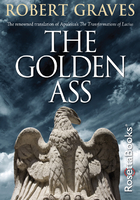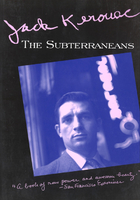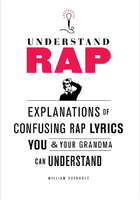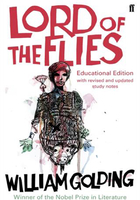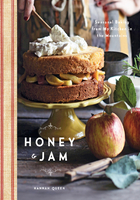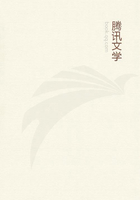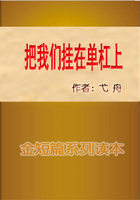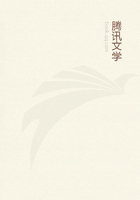Nuala O'Faolain changed lives – knowing her changed mine. After her memoir, Are You Somebody?, became an international bestseller, hundreds of people wrote to Nuala – some to thank her, many to confess their own secrets. For these readers Nuala spoke with a frankness that, despite differences of circumstance, named a common anguish. But Nuala was an influential journalist before she was a memoirist. For the first time, American admirers can read for themselves a selection of Nuala's eloquent columns, spanning nearly twenty years, from The Irish Times and the Sunday Tribune.
Nuala O'Faolain was part of a noble tradition of female dissent in a country that had little value for its women (or its children) and even less for the childless, aging woman who had no "tribal function, and must invent her own self-importance." Her feminism was an outgrowth of a sense of social justice, the moral response to the conditions in which she lived and those she witnessed. But Nuala was nonetheless a feminist who acknowledged that her convictions were compromised in her dealings with men, once claiming she "would still walk across 59 women to get to one man if I was attracted to him." The experience of being a middle-aged woman was never more candidly conveyed: "There's nothing genteel about the life inside me," she wrote. "In there it is as if I live in a condition of turbulence, always moving between opposites – wellbeing and sadness, delight and dullness, acceptance and restless regret." The capacity to make use of the restiveness of such a nature to purposeful effect is in part what made Nuala a great columnist and journalist, not to mention an extraordinary person.
We were friends for the last ten years of her life, years she divided between Ireland and New York, after the success of Are You Somebody? changed her own life. Nuala had a gift for friendship, and it was a deep privilege to know and love her. Which is not to say that intimacy was easy for her; the contradictions in her nature were often present in her dealings with those she loved. Sudden reversals and shifts of mood could be frightening, just as her equally unexpected generosity could astonish.
Nuala discovered she was ill with advanced cancer in New York, late in February 2008. She returned home to Ireland. After she underwent radiation treatment, I visited her cottage in Clare in March to help out. I found a book of Rilke's poems on her shelf; I had the same collection at home. Radiation had left her weak and exhausted and she hated almost every minute of my time with her. She longed to be alone but could not manage most things. I sat, reading in the next room, trying to leave her be. I remember calling out a line of Rilke's to her through the doorway: "I hold this to be the highest task of a bond between two people that each should stand guard over the solitude of the other."
"Well," she answered crisply from the next room. "Then perhaps you should shut the fuck up?"
After I returned to New York, Nuala sent me an e-mail: "This place has never been the same since you left. Mabel [her dog] hasn't been the same. I haven't been the same. But not worse, more somber, more solitary – even though there are far too many people around. I am moving, in other words, into the dark – but at the enemy's pace."
None of Nuala's family and friends thought she had so little time, but I see now that she sensed it. She knew she could not tolerate hospitals or invalidism and declined chemotherapy. Instead, in a wheelchair, she went with friends to Paris, Madrid, back to New York to say goodbye, to Berlin for the opera, and to Sicily for a long-planned holiday with her sisters and brother, and her boyfriend, John. She died in Dublin, on May 9, a few days after that final trip. It was almost exactly three months to the day that John and I had sat with her in the emergency room at New York Hospital as the doctors discovered she had cancer.
But for the moment, Nuala's voice is here again. Here she is, addressing the reader in her intimate way, passing on trenchant observations about the country she loved and sometimes witheringly criticized. If Nuala's eye was unremitting, her vulnerability left her open to the sufferings of others, to the inequities of culture, and to the play of power in the dealings between women and men. These columns are free of polemic, but score direct hits on the complex subjects under consideration. "I was blinded by the habit of translating everything into personal terms," she writes apologetically, but it is her source of power. Through the prism of casual, everyday encounters, Nuala presses her subject, reaching beyond the prompting of the moment to transcend topicality. The result is a cumulative historical narrative, an inadvertent chronicle of a transformed Ireland by one of its sharpest critics.
The voice in these columns is vintage Nuala in its directness, its plain-spokeness, but it is also a voice made subtle by erudition and intellectual reach. The paradoxical combination of frankness and an academically trained mind (Nuala had an undergraduate degree in medieval English from Hull and a postgraduate degree in nineteenth-century literature from Oxford) results in a lightness of touch, of great facility. Unpretentious for all her scholarship, Nuala did not think herself wise. And yet what else is there to call it when she reminds us that "the powerful have a duty to be self-conscious"?
Once Nuala spent more time in Manhattan, American concerns began appearing in her writing. She wrote, "I wanted to borrow the immigrant energy of the great city. I wanted to escape the despair and lethargy that still clings to the Irish countryside." But it was to Ireland that Nuala returned when she knew she was dying. She wrote to me after recording her last, painful radio interview with her dear friend Marian Finucane – "I am just so grateful and privileged to be allowed to speak my truth out. After all, I have this community, Ireland, instead of a family of my own."
The title of this collection is not something Nuala would have chosen. She would not have described her life with such a word as "radiant." Anguish was, for her, all too present and traceable, as readers of her memoirs know. That she set aside personal turbulence when contemplating the world she describes in these columns is a measure of both method and necessity. But for those who knew and loved Nuala – as well as for her devoted readers – "radiant" aptly describes the intelligence at work in these pages. I, for one, can vouch for her radiance, even as these columns demonstrate the brilliant illumination we have lost with her passing.
Sheridan Hay
New York, 2010

